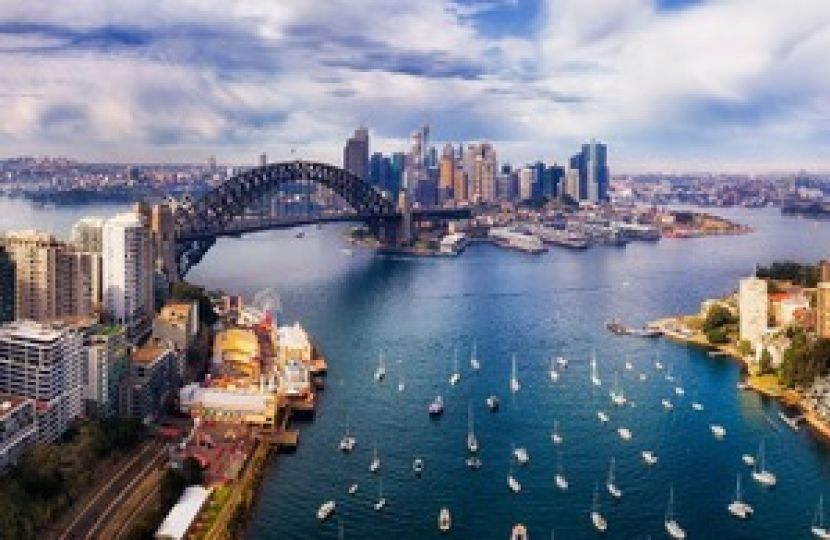
The UK's trade deals with Australia and New Zealand come into effect on the 31st of May.
- Australia and New Zealand trade deals to enter into force at midnight on Wednesday
- Special shipments of handpicked UK goods including signed Beano comics, personalised Cambridge Satchels, Brighton Gin and Burleigh pottery among very first to be sent under the new arrangements
- Deals remove tariffs on all UK goods exports Down Under and could mean lower prices for UK consumers
From today [31 May], UK businesses will be able to sell to Australia and New Zealand more easily as the UK’s trade deals with the countries, the first negotiated from scratch since we left the EU, come into force.
Under the deals’ beneficial terms tariffs on all UK goods exports to Australia and New Zealand will be removed, unprecedented access to these markets for services unlocked, and red tape slashed for digital trade and work visas.
Each region and nation of the UK is expected to benefit. Tailored to the UK’s strengths, the deals are set to deliver an economic boost by driving bilateral trade up by 53% with Australia and 59% with New Zealand.
The agreements could also mean reduced prices for UK consumers on favourites such as wine, Tim Tams and kiwi fruit and lowered costs on machinery parts for UK manufacturers.
The announcement comes after the UK, Australia and New Zealand completed their domestic ratification processes, allowing the deals to enter into force. In the UK this required primary legislation in the form of the Trade (Australia and New Zealand) Bill.
Business and Trade Secretary Kemi Badenoch said:
Today is a historic moment as our first trade deals to be negotiated post-Brexit come into effect.
Businesses up and down the country will now be able to reap the rewards of our status as an independent trading nation and seize new opportunities, driving economic growth, innovation and higher wages.
International Trade Minister Nigel Huddleston will tour DHL’s Southern Distribution Centre near Heathrow to see off two handpicked consignments of UK goods, some of the first to be sent to Australia and New Zealand under the new deals.
Alongside the new trade agreement with Australia, more young Brits will benefit from life-changing opportunities Down Under thanks to the expansion of our shared Youth Mobility and Working Holiday Maker visa schemes. On 1 July 2023 the age limit for UK applicants going to Australia will go from 30 to 35 years old, and from 1 July 2024 Brits will be able to stay in Australia for up to three years without having to meet specified work requirements.
The consignments will be sent via express air freight with DHL, which is accelerating to low carbon operations with a commitment to reach zero emissions logistics by 2050 globally. Moving more than 100,000 shipments per day for UK businesses, Australia, New Zealand and other CPTPP countries are popular markets, with expectations for continued growth.
Both free trade agreements are also part of the UK’s strategic tilt to the Indo-Pacific region and complement our accession to the Comprehensive and Progressive Agreement for Trans-Pacific Partnership (CPTPP) – a huge trade bloc which will have a total GDP of £12 trillion once we join.
The deals include robust protections for British farmers, including staging tariff liberalisation for sensitive goods over time.
Other key benefits of the deals include:
- Access to Australian work visas for UK service suppliers without being subject to its changing skilled occupation list and enabling Brits to work in New Zealand more freely
- Flexible rules of origin and removal of tariffs on all UK exports to both markets
- Advanced rules on digital trade which cut red tape, unlock the free flow of data and give businesses confidence their valuable intellectual property will be protected
- Access to government contracts and investment opportunities, including equal footing to compete for an additional £10 billion of Australian public sector contracts per year and high investment screening thresholds for New Zealand
- Progressive opportunities to grow our low-carbon economy through liberalised tariffs on environmental goods and encouraging investment in low-carbon technology
- Environment chapters reaffirming our commitments to the Paris Agreement and recognising our right to regulate to meet Net Zero

